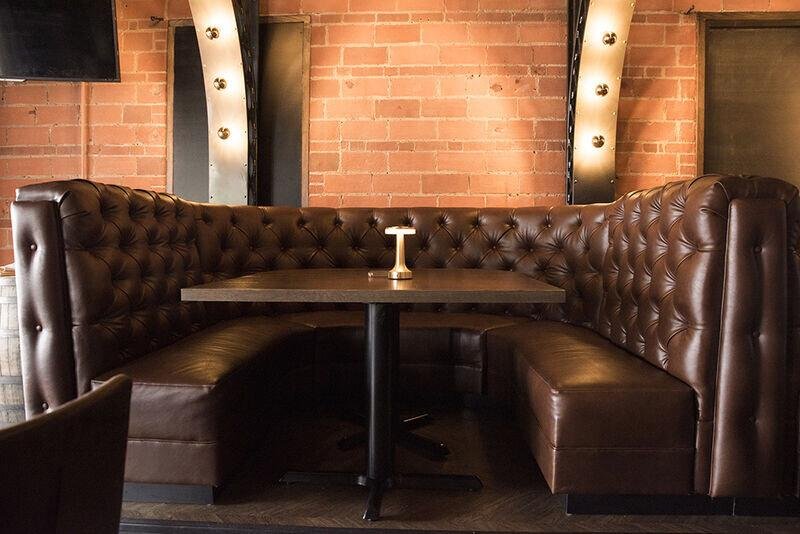When it comes to creating an inviting and stylish dining atmosphere, the choice of seating plays a crucial role. Among various options, the restaurant sofa stands out as a versatile and comfortable solution that can significantly enhance the dining experience for patrons. In this comprehensive guide, we will explore the benefits of restaurant sofas, design considerations, and how to select the perfect sofa to suit your restaurant’s unique aesthetic and functional needs.
The Importance of Comfortable Seating in Restaurants
Comfortable seating is a fundamental aspect of any successful restaurant. It impacts not only the satisfaction of your guests but also their overall dining experience.What color coffee table with a grey couch A well-chosen restaurant sofa can provide several advantages:
- Enhanced Comfort: Sofas offer superior comfort compared to traditional dining chairs. The plush cushions and supportive backrests allow guests to relax and enjoy their meals for longer periods.
- Aesthetic Appeal: Sofas can add a touch of elegance and sophistication to your restaurant’s decor. They come in various designs, materials, and colors, allowing you to match them with your restaurant’s theme seamlessly.
- Versatility: Restaurant sofas are highly versatile and can be used in various dining settings, from casual cafes to upscale fine dining establishments.
Design Considerations for Restaurant Sofas
When selecting a restaurant sofa, several design factors must be considered to ensure it complements your dining space and meets practical requirements.
1. Space and Layout
Before choosing a sofa, evaluate the available space and layout of your restaurant. Consider the following:
- Seating Capacity: Ensure the sofa size aligns with the desired seating capacity without overcrowding the area.
- Accessibility: Maintain adequate space for easy movement of staff and guests. Avoid placing sofas in areas that may obstruct walkways or exits.
- Configuration: Determine whether a straight, L-shaped, or U-shaped sofa configuration would best suit your space.
2. Material and Durability
The material of the sofa is critical in ensuring durability and ease of maintenance. Popular options include:
- Leather: Known for its durability and easy cleaning, leather is a popular choice for high-traffic areas. It adds a luxurious touch but may require regular conditioning to maintain its appearance.
- Fabric: Fabric sofas offer a wide range of colors and patterns. Choose a stain-resistant and durable fabric suitable for commercial use.
- Vinyl: Vinyl is a cost-effective alternative to leather, offering similar benefits of durability and easy maintenance.
3. Comfort and Ergonomics
Comfort is paramount in a restaurant setting. Consider the following ergonomic aspects:
- Cushion Firmness: Choose cushions that provide a balance between softness and support to prevent discomfort during long dining sessions.
- Backrest Height: Ensure the backrest is high enough to provide adequate support without obstructing the view across the table.
- Seat Depth: A deeper seat can offer more comfort, but it should be balanced with the table height to ensure easy reach.
4. Style and Aesthetics
The sofa’s design should align with the overall theme and decor of your restaurant. Consider the following:
- Color Scheme: Choose colors that complement your restaurant’s color palette. Neutral tones offer versatility, while bold colors can create a focal point.
- Design Theme: Whether your restaurant has a modern, vintage, or rustic theme, select a sofa design that enhances the ambiance.
- Customizability: Some manufacturers offer customizable options, allowing you to choose the upholstery, frame, and additional features to match your vision.
What Are the Top Furniture Trends to Watch in 2024?
Types of Restaurant Sofas
Restaurant sofas come in various styles, each offering unique benefits. Here are some popular types:
1. Banquette Seating
Banquette seating features sofas that are built into the walls, creating a continuous seating arrangement. This style is ideal for maximizing space and providing a cozy dining experience.
2. Booth Seating
Booth seating consists of sofas paired with fixed tables, creating a private and intimate dining area. This style is popular in diners and casual eateries, offering a sense of privacy for guests.
3. Modular Sofas
Modular sofas are composed of individual pieces that can be arranged in various configurations. This flexibility allows you to adapt the seating arrangement based on the number of guests and the layout of your restaurant.
4. Freestanding Sofas
Freestanding sofas are standalone units that can be easily moved and rearranged. This style offers versatility in creating different seating arrangements as needed.
Maintenance Tips for Restaurant Sofas
Proper maintenance is essential to ensure the longevity and appearance of your restaurant sofas. Here are some tips:
- Regular Cleaning: Implement a routine cleaning schedule to remove dirt and stains. Use appropriate cleaning products based on the sofa material.
- Immediate Spill Management: Address spills and stains immediately to prevent permanent damage. Blot the spill with a clean cloth and avoid rubbing.
- Periodic Inspections: Conduct regular inspections to check for signs of wear and tear. Address any issues promptly to prevent further damage.
- Protective Measures: Use protective covers or treatments to shield the sofa from stains and damage. This is especially important for fabric and leather sofas.
Conclusion
Choosing the right restaurant sofa can significantly enhance the comfort, style, and overall dining experience for your guests. By considering factors such as space, material, comfort, and design, you can select a sofa that not only complements your restaurant’s decor but also meets practical needs. Investing in high-quality, durable, and stylish seating will create a welcoming atmosphere that encourages guests to return.




